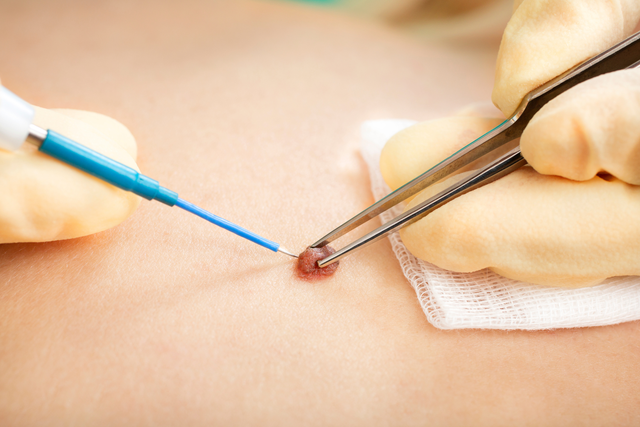Introduction
Infertility is a complex and emotionally challenging issue that affects millions of couples worldwide. In recent years, the incidence of infertility has been on the rise, and lifestyle factors have been recognized as significant contributors to female infertility. In Dubai, healthcare experts have been diligently studying the impact of lifestyle choices on female reproductive health to offer valuable insights and guidance to couples struggling to conceive. This article delves into the key lifestyle factors impacting female infertility, as revealed by Dubai’s experts, and sheds light on the importance of making informed choices to improve reproductive outcomes.
The Role of Diet and Nutrition
Dubai experts emphasize that diet and nutrition play a vital role in maintaining overall health and fertility. A well-balanced diet rich in essential nutrients, vitamins, and minerals is crucial for optimizing reproductive function. Hormonal imbalances, irregular menstrual cycles, and diminished egg quality can result from nutritional deficiencies. Conversely, a diet comprising a variety of fruits, vegetables, whole grains, and lean proteins can positively influence fertility and increase the chances of conception.
Weight Management and Its Influence
Maintaining a healthy weight is essential for female fertility. Both underweight and overweight conditions can adversely affect reproductive health. Excess body weight can lead to insulin resistance, hormonal imbalances, and disrupted ovulation, while being underweight may result in irregular menstrual cycles and hinder the release of eggs. Dubai experts recommend adopting a balanced approach to weight management, combining a healthy diet with regular physical activity to enhance fertility prospects.
Stress and Its Influence on Fertility
Stress has become an inevitable part of modern life, and it can take a toll on female reproductive health. Dubai experts highlight that chronic stress can disrupt hormonal balance, affect ovulation, and decrease the chances of conception. Implementing stress-reducing techniques such as mindfulness, yoga, and meditation can help restore hormonal harmony and improve fertility outcomes for women struggling to conceive.
Impact of Physical Activity
Regular physical activity is beneficial for overall health, but excessive and intense exercise can impact female fertility. High-intensity workouts may lead to irregular menstrual cycles and disrupt ovulation. Dubai experts advise women aiming to conceive to strike a balance in their exercise routines and avoid extreme workout regimens. Moderate physical activity, such as brisk walking or gentle yoga, can positively contribute to reproductive health.
Tobacco, Alcohol, and Substance Misuse
Tobacco smoking, alcohol consumption, and illicit drug use have been strongly linked to female infertility. In Dubai, experts emphasize the need for women and their partners to quit smoking and abstain from excessive alcohol consumption or drug use when attempting to conceive. These substances can harm reproductive organs, disrupt hormonal balance, and decrease the likelihood of successful conception.
Impact of Environmental Exposures
Dubai experts also acknowledge the potential impact of environmental factors on female fertility. Exposure to certain pollutants, chemicals, and toxins in the environment may disrupt the endocrine system and affect reproductive health. While individuals may not have complete control over their environment, being mindful of potential hazards and taking necessary precautions can be beneficial for fertility and overall well-being.
Significance of Preconception Health
Preconception health is a critical aspect of optimizing fertility outcomes. Dubai experts recommend that women who plan to conceive should undergo comprehensive health check-ups, addressing any underlying medical conditions that could affect fertility. Early identification and management of health issues can enhance the chances of successful conception and healthy pregnancy.
The Impact of Age on Female Fertility
Female fertility is notably influenced by age. With advancing age, women experience a decline in both the quality and quantity of their eggs, resulting in reduced fertility. Dubai experts highlight the importance of understanding the relationship between age and fertility to make informed decisions about family planning. Seeking guidance from healthcare professionals can help women assess their fertility potential and explore appropriate fertility preservation options if needed.
The Impact of Sleep and Reproductive Health
In Dubai, experts also emphasize the importance of quality sleep in maintaining female reproductive health. Sleep plays a crucial role in hormone regulation and overall well-being. Disrupted sleep patterns, such as insomnia or irregular sleep schedules, can lead to hormonal imbalances that may affect ovulation and menstrual regularity. Prioritizing sufficient and restful sleep can positively contribute to female fertility and overall health.
The Role of Sexual Health and Timing
Apart from lifestyle factors, Dubai experts stress the significance of sexual health and timing in achieving pregnancy. Understanding the menstrual cycle, tracking ovulation, and maintaining optimal sexual health are essential aspects of successful conception. Couples are encouraged to communicate openly about their fertility goals and engage in regular, timed intercourse to increase the likelihood of conception.
Supportive Therapies and Fertility Treatments
For couples facing challenges with fertility, the fertility clinic offers a wide range of supportive therapies and infertility treatments in dubai. These include assisted reproductive technologies (ART) such as in vitro fertilization (IVF), intrauterine insemination (IUI), and fertility medications. Dubai experts work closely with couples to assess their specific fertility issues and recommend personalized treatment plans to maximize their chances of conceiving.
Initiatives for Education and Awareness
Dubai’s commitment to empowering couples with knowledge about female infertility extends to education and awareness initiatives. Healthcare institutions, community centers, and organizations collaborate to provide seminars, workshops, and online resources on fertility-related topics. By fostering awareness, Dubai aims to break the stigma surrounding infertility, encourage early intervention, and promote a supportive environment for couples seeking fertility assistance.
Multidisciplinary Approach to Fertility Care
Dubai’s experts emphasize the significance of a multidisciplinary approach to fertility care. Collaboration between gynecologists, endocrinologists, urologists, psychologists, and nutritionists allows for comprehensive evaluation and treatment of infertility. This integrated approach addresses all aspects of reproductive health, providing couples with a holistic and supportive fertility journey.
Conclusion
Understanding the lifestyle factors impacting female infertility is crucial for couples seeking to conceive. Dubai’s experts have provided valuable insights into the significant influence of diet, weight management, stress, physical activity, and environmental exposures on reproductive health. By making informed choices and adopting healthy lifestyle practices, women can optimize their fertility and improve their chances of successful conception. Seeking guidance from healthcare professionals and adopting a holistic approach to preconception health can empower couples on their journey toward building a family. Dubai’s commitment to research and expert guidance in this field serves as a beacon of hope for couples facing infertility challenges, offering them the support they need to realize their dreams of parenthood.
















Leave a Reply